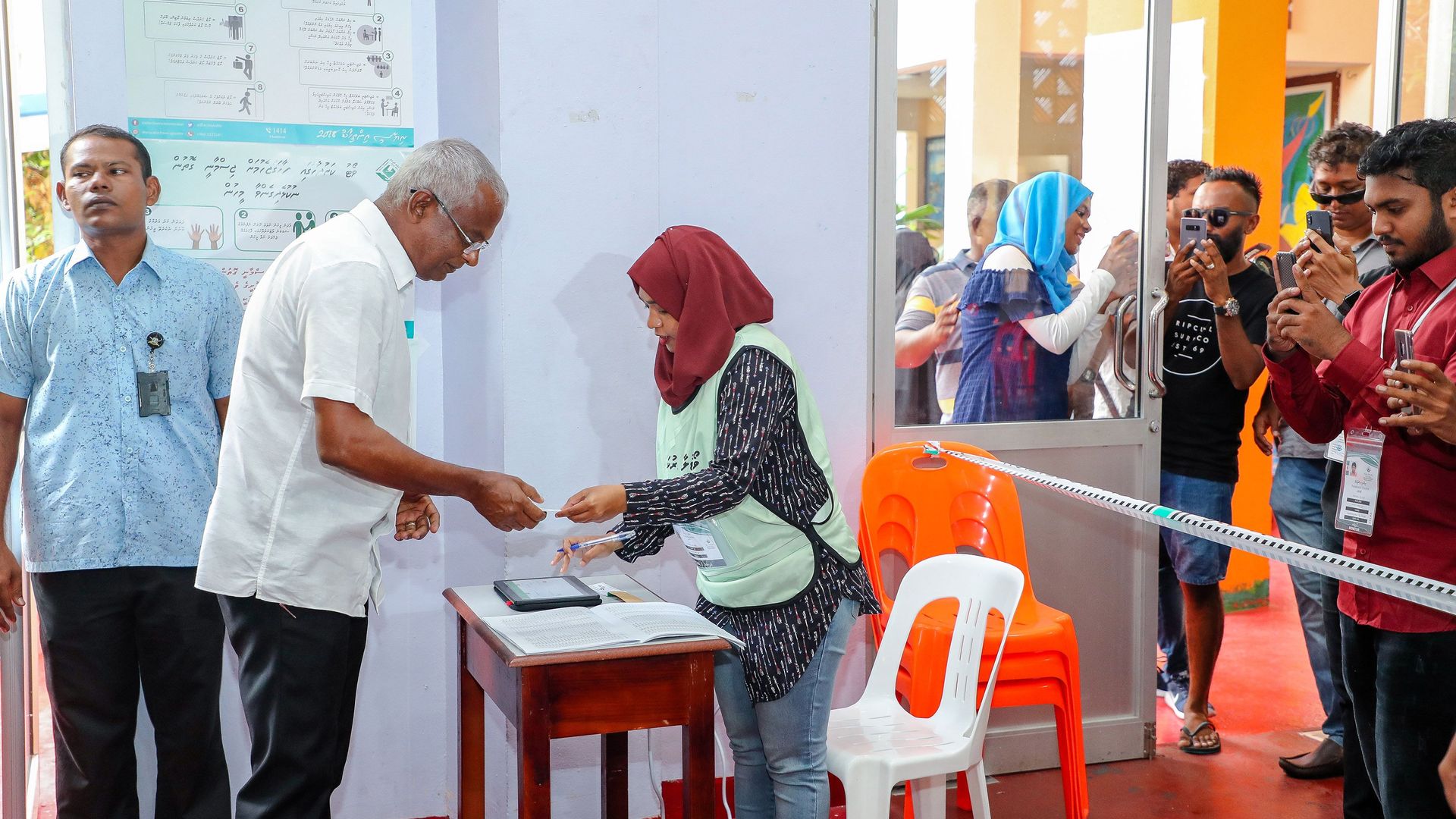
Data: Council of Europe (2006), NIPSSR (2017), Eurostat (2018), and Martin et al. (2018) via United Nations Population Fund; Note: Final values for Russia and Japan are from 2015; Chart: Harry Stevens/Axios
A tiny tropical nation hopes to set an example for the world on two crucial challenges: reversing authoritarianism and standing up to China.
Why it matters: Democracy appears to be returning to the Maldives six years after the country’s first, short-lived democratic government was toppled. In an election last month that was widely expected to be rigged in favor of strongman President Abdulla Yameen — and which took place with the most prominent opposition leaders in jail — the opposition won a resounding victory. Yameen initially accepted the results but has since reversed course.
- Over the last few days, the Supreme Court heard Yameen’s allegations that he was cheated, four of five election commissioners fled the country after being threatened, and the U.S. State Department threatened “appropriate measures against anyone who undermines a peaceful transfer of power.”
- I sat down with Ahmed Naseem, a former foreign minister who is now serving as President-elect Ibrahim Mohamed Solih’s special representative to Washington, to discuss the challenges the incoming administration faces ahead of the Nov. 17 transition.
Catch up quick: The Maldives is a popular honeymoon destination. It's also situated along key shipping routes and has become a geopolitical battleground for China and India, which is wary of Beijing’s military ambitions in the Indian Ocean. Yameen steered the country away from India, its longtime ally, and into China’s orbit by signing massive infrastructure deals Naseem says could push the Maldives “into a pit of debt from which we could never escape on our own.”
- The incoming administration is demanding renegotiations and plans to restore ties with India, which Naseem says has “never tried to dominate us.”
- “The things that happened with China, we will investigate,” he told me. “We expect China to cooperate with us.”
- “Some of these infrastructure investments were useful and some were not. We will find out how much was spent and how much went under the table to different government officials, and we’ll find those corrupt officials and we’ll deal with it. If it was the president who was corrupt, we’ll deal with that as well.”
What to watch: Naseem says “transitional justice” will be a top priority. I asked if Yameen has to fear prosecution after leaving and he didn’t rule it out but added, “There are too many people to be prosecuted, and Maldives is a very small place.”
The bigger picture: Naseem, a veteran of the pro-democracy movement who spent five years in prison, says the democratic breakthrough in the Maldives provides “a template that could be followed by many other countries,” particularly other Muslim countries.
- “You don’t have to be violent in order to get democracy. ... You will suffer, you will go to jail. You just don’t become violent because that gives an excuse to the dictatorial regime to become more brutal and suppress democracy.”
- “We wouldn’t have got where we got without Western backing, without the help of the world’s democracies.” After that backing faded last time, he says, dictatorship returned. He’s seeking U.S. help to build sustainable democratic institutions.
- “In the short term, people must see the benefits of democracy. … If anybody comes up and says democracy is useless, the other person should be able say, ‘These are the things democracy brings for us.’”
The bottom line: “There aren’t many countries that get a second chance at democracy so quickly as the Maldives," Naseem says.
